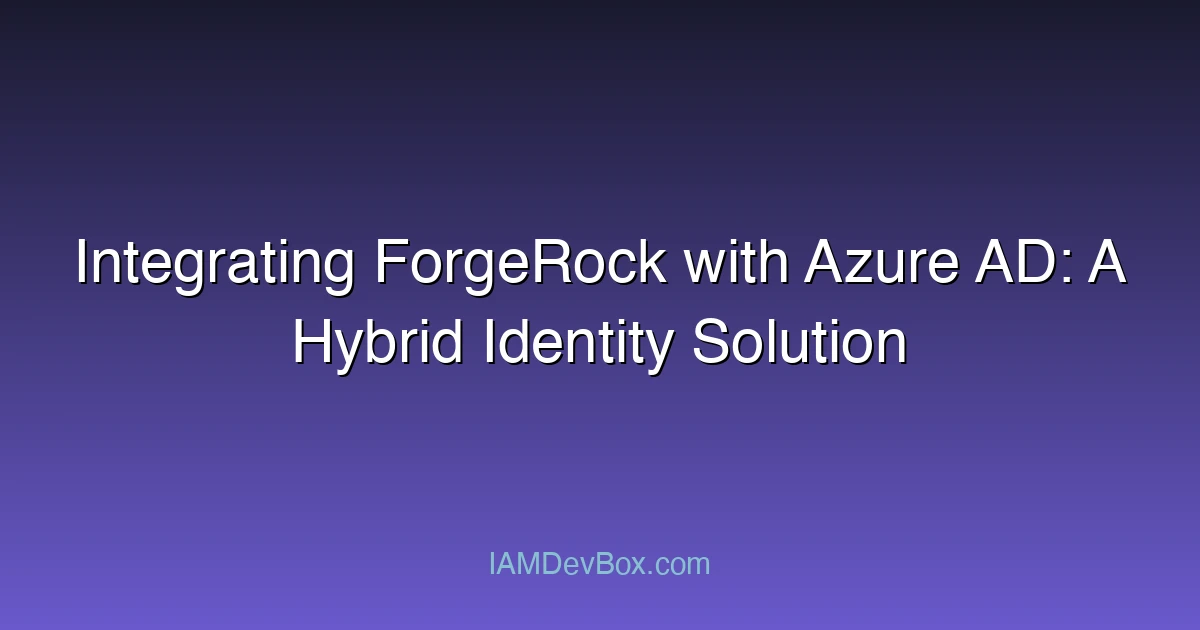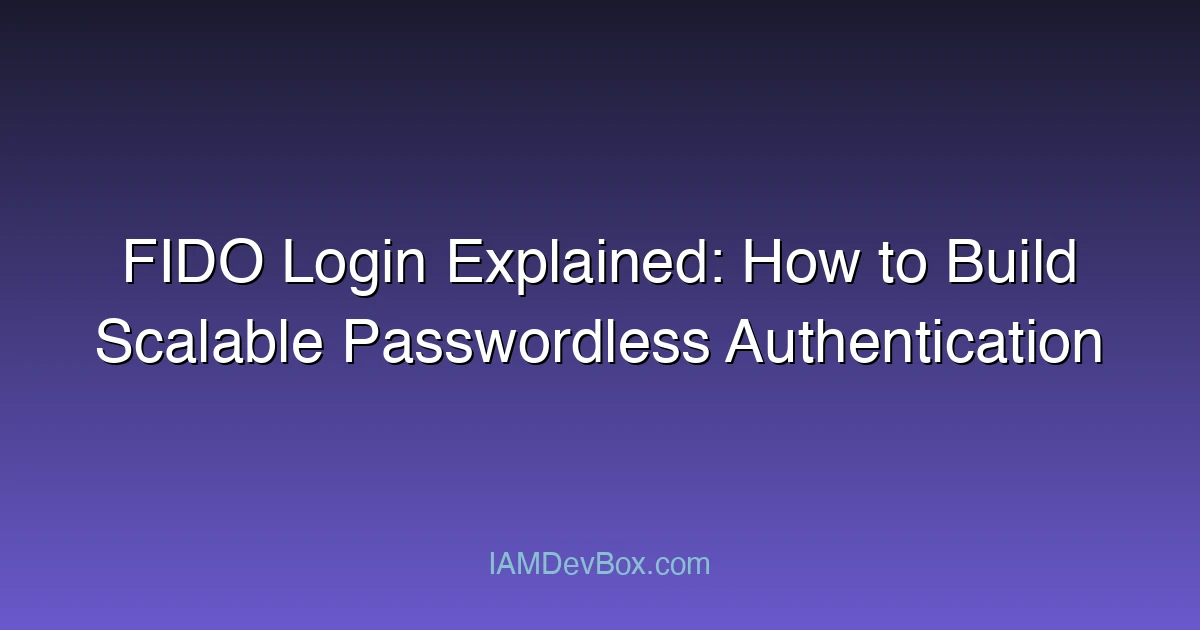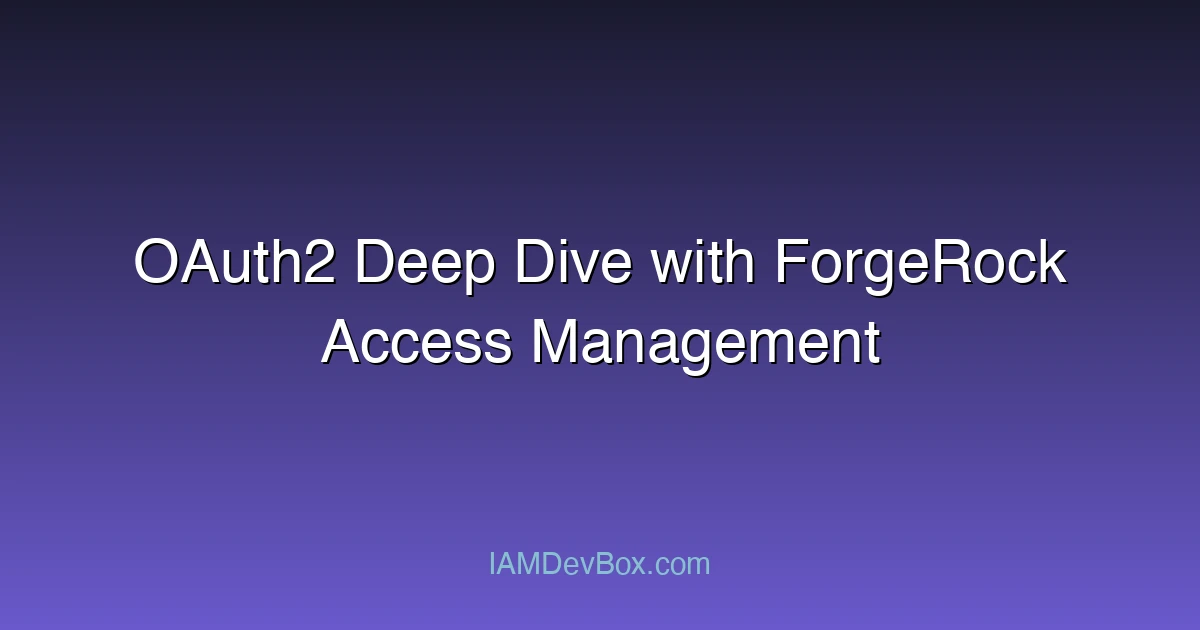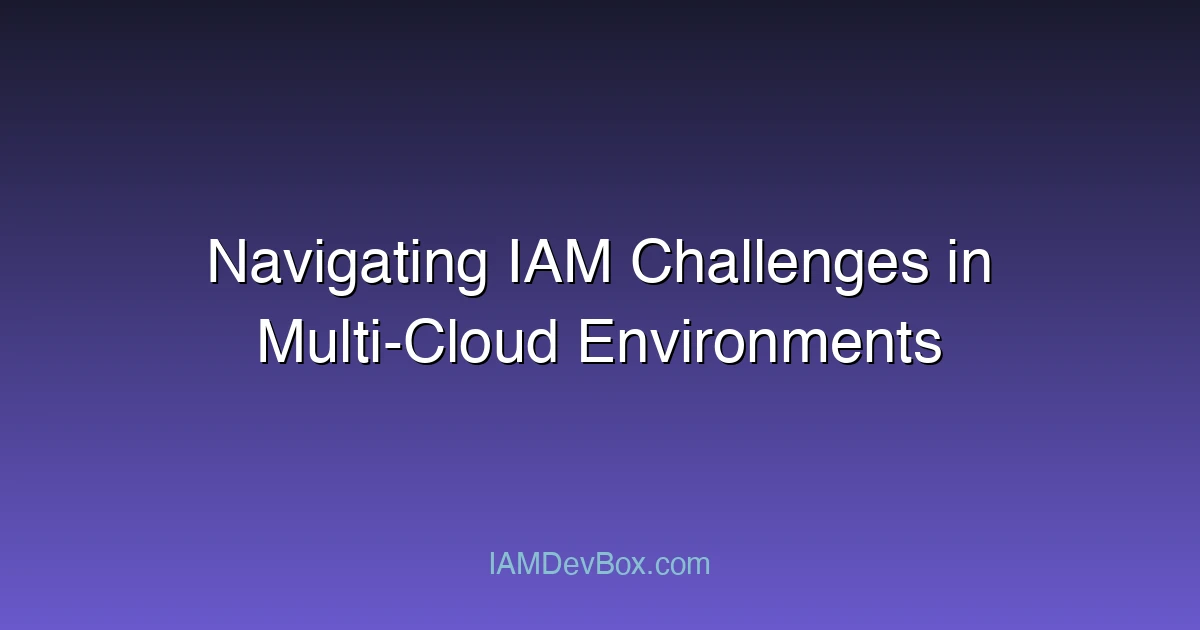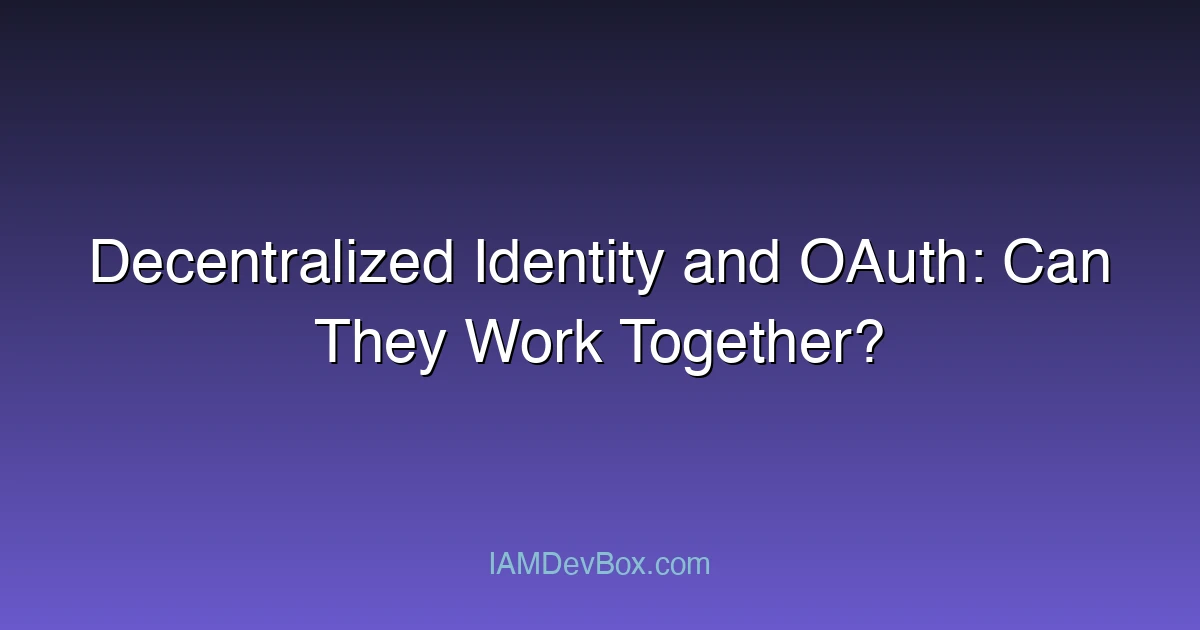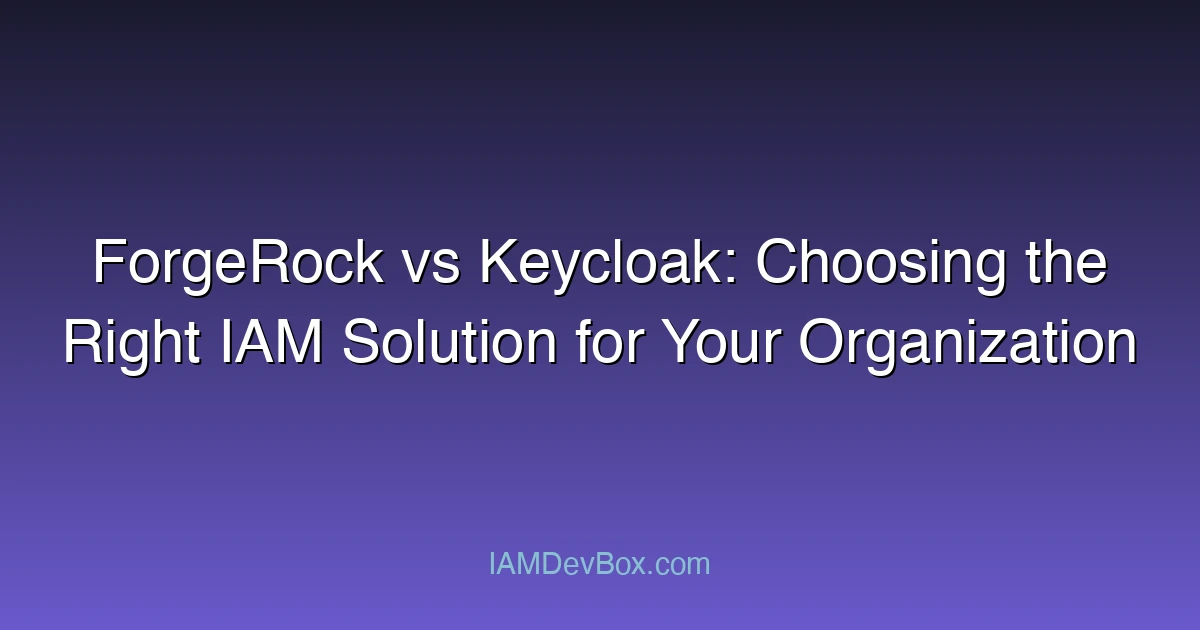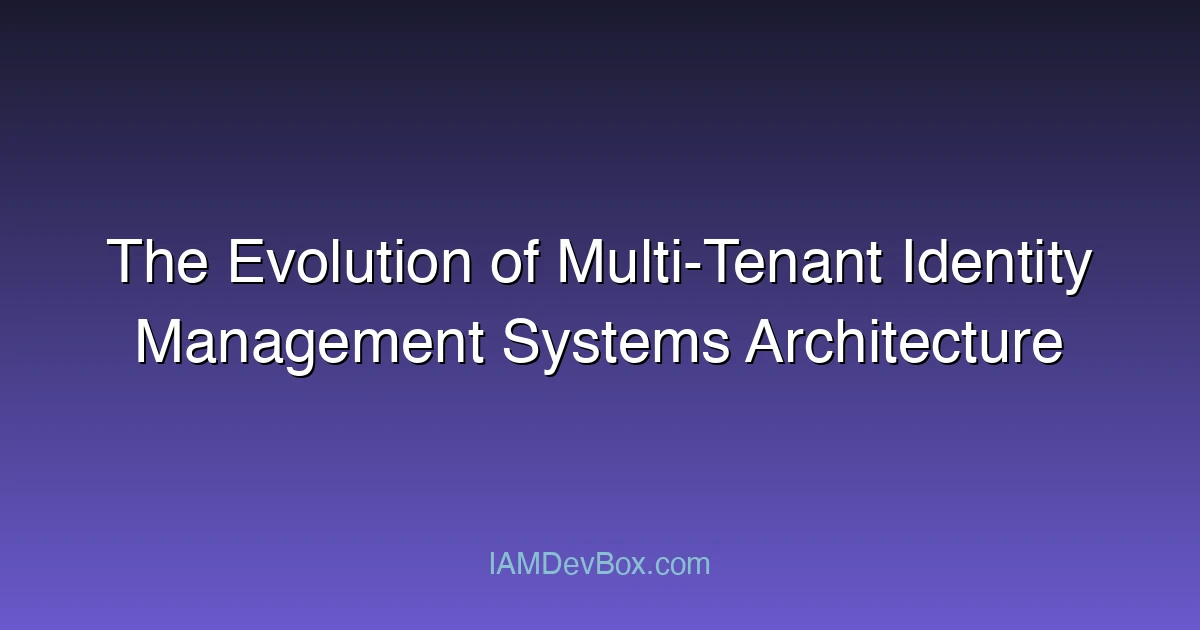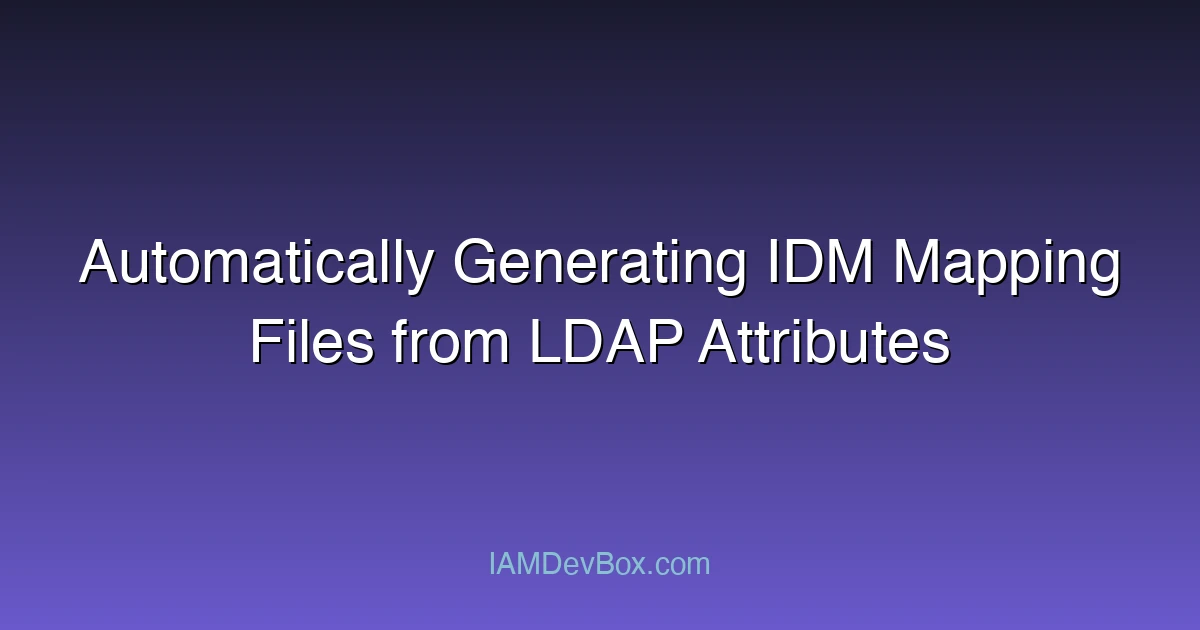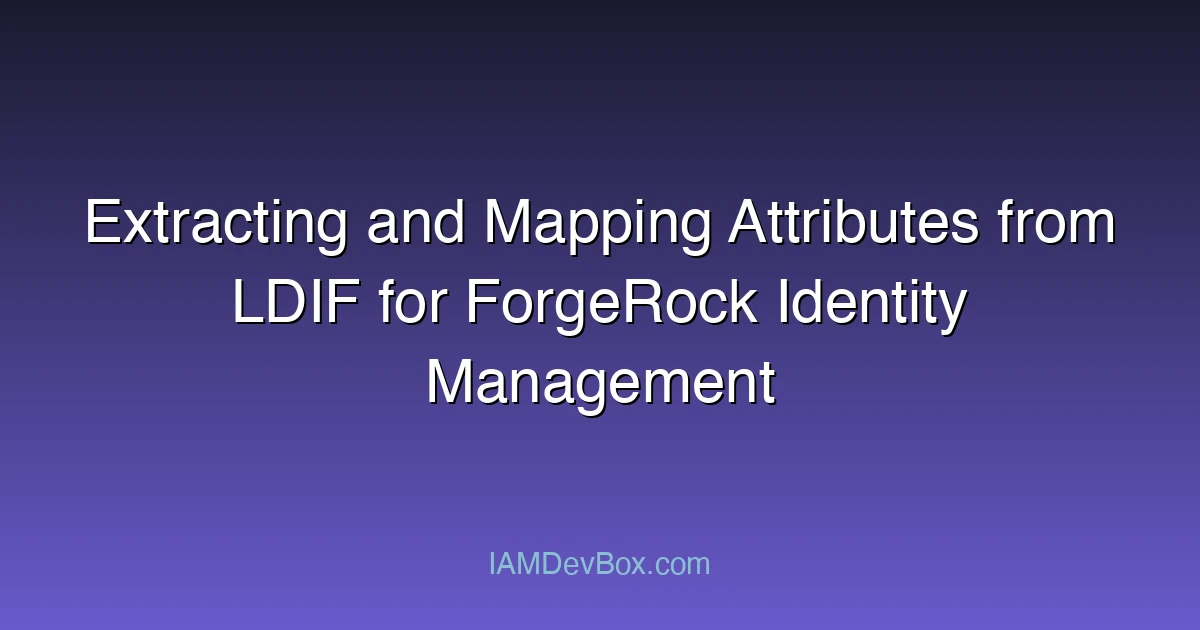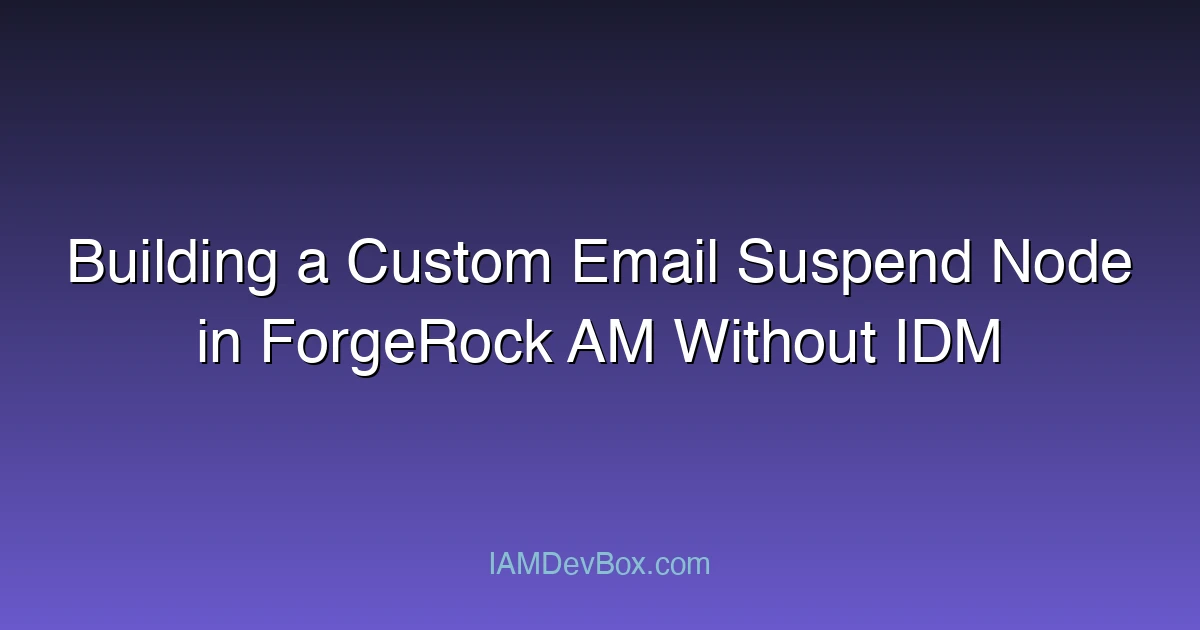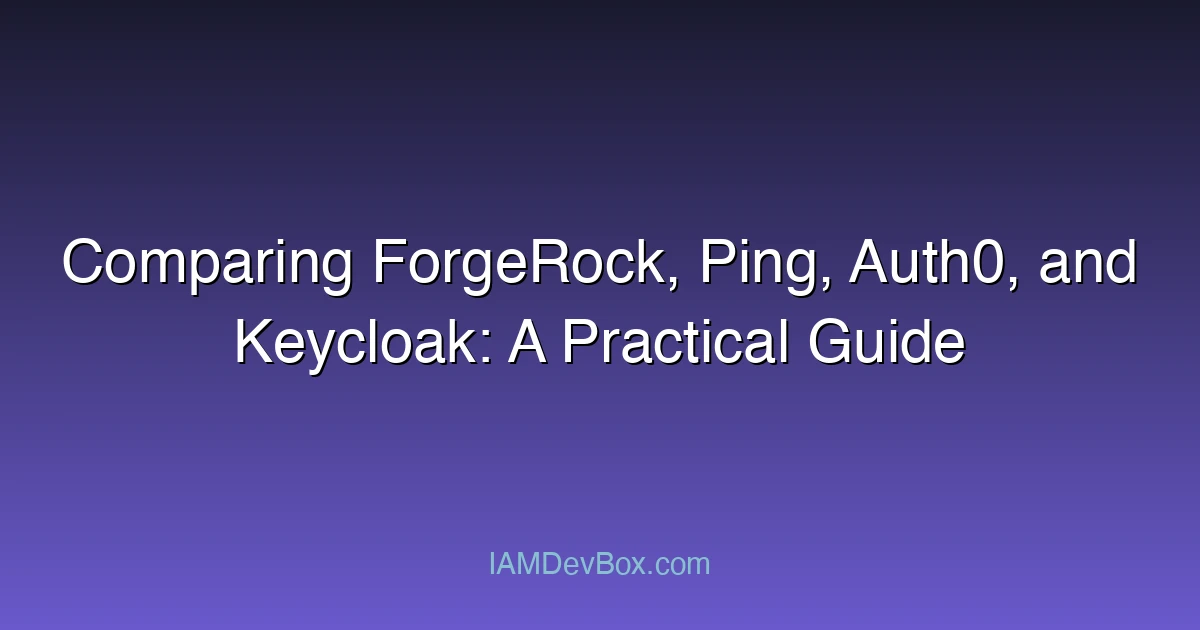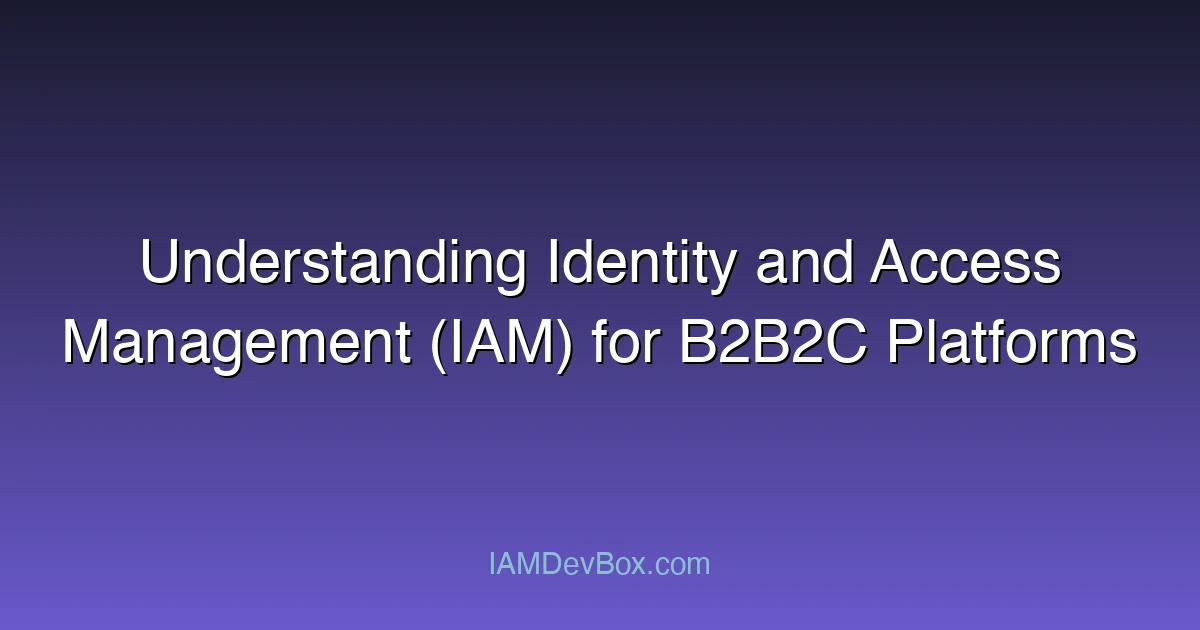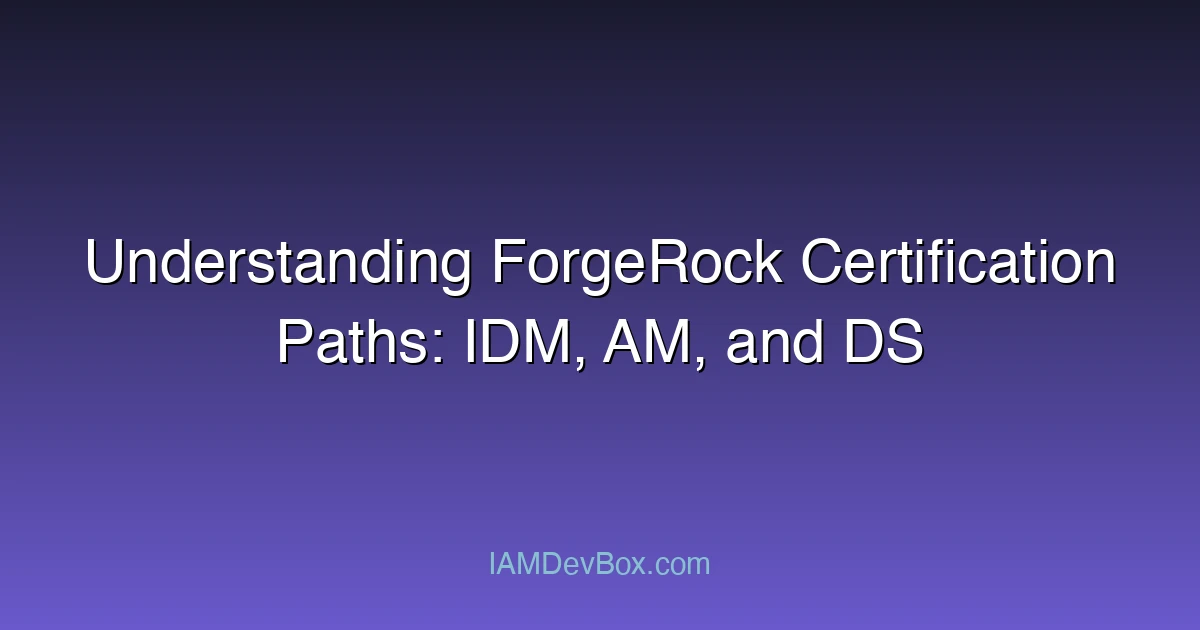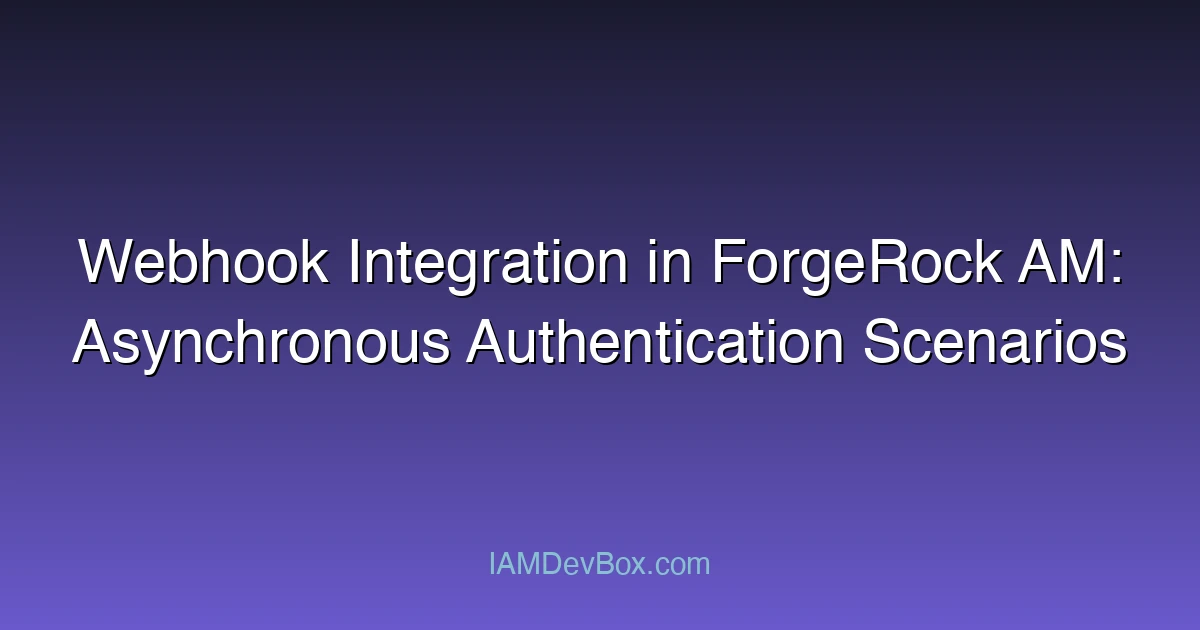
Webhook Integration in ForgeRock AM: Asynchronous Authentication Scenarios
In the realm of modern identity management, ForgeRock Access Management (AM) stands as a robust solution for managing user access and authentication. One of its powerful features is the ability to integrate webhooks, enabling asynchronous auth scenarios that can significantly enhance user experience and system scalability. This blog post dives into the details of implementing webhook integration in ForgeRock AM, focusing on asynchronous auth scenarios. We will explore the architecture, implementation steps, and best practices for securing these integrations. ...

